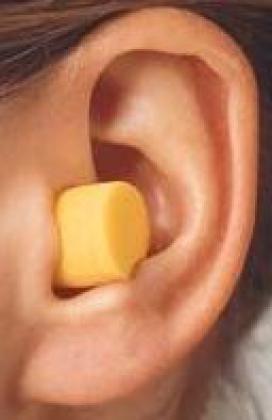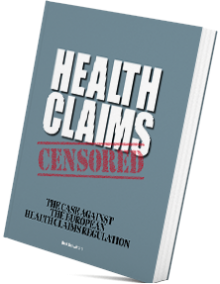31 October 2013
In 2005, the European Parliament evaluated the Commission’s draft proposal for a Nutrition and Health Claims Regulation. Here’s the second part of an anthology of the parliament’s wise observations. While the first part was taken from the Opinion of the Committee on Industry, Research and Energy [1], this second part is taken from the Opinion of the Committee on the Internal Market and Consumer Protection [2]. The quotes speak for themselves and in view of the enormous problems created by the Regulation, they proved to be one hundred percent correct.
“Nutritional Profiling – The Commission’s proposal seeks to limit nutrition and health claims to foods that are “good for you”. The draftsman does not believe that it should be the role of government – whether local, national or European – to take decisions as to which foods are good for consumers.
If different people have different dietary needs – depending on factors such as lifestyle, age, gender – can we really talk about good foods and bad foods, rather than good diets and bad diets?
Why should it be acceptable for a low-fat cheese to claim to be high in calcium but not for a high-fat cheese that may contain as much or more calcium?
Whilst we don’t want to see alcopops marketed as being good for you, is there any sense in preventing red wine producers from claiming that moderate quantities of red wine can be good for your heart?
The draftsman believes that a ban on all general and implied health claims would be a disproportionate measure. Where claims are supported by scientific knowledge and do not mislead consumers, the subject and scope of the claim should not be a matter for legislation. Existing legislation on misleading advertising and on food labelling already prohibits the use of untrue of misleading claims. The draftsman believes that it would be preferable to enforce such existing legislation more consistently and more effectively rather than introduce more legislation unlikely to be enforced any better.
Scientific substantiation should aim at due justification of the nutrition and health claim and the claimed beneficial effect, however, it should not be disproportionate to achieve this aim, i.e., the level of proof should be ‘on the balance of probabilities’ and not ‘beyond reasonable doubt’.
‘Long-established and non-controversial science’ must be judged by independent scientists. Therefore the involvement of the Authority is necessary.
According to Article 10(1) health claims may only be used if they have been authorised pursuant to the provisions of the regulation. However, this authorisation procedure goes too far, since it also covers recognised and scientifically proven claims which do not mislead consumers. Moreover, the authorisation procedure envisaged is bureaucratic, impractical and, especially in the light of the Lisbon strategy, unacceptable. Food business operators should have the right to continue using health claims that have been notified even if they are not included in the list provided for in Article 12.”
If only they had listened.
Bert Schwitters
[1] OPINION of the Committee on Industry, Research and Energy (18.3.2005) for the Committee on the Environment, Public Health and Food Safety on the proposal for a regulation of the European Parliament and of the Council on nutrition and health claims made on foods (COM(2003)0424 – C5-0329/2003 – 2003/0165(COD)). Draftswoman: Angelika Niebler.
[2] OPINION of the COMMITTEE ON THE INTERNAL MARKET AND CONSUMER PROTECTION (25.4.2005) for the Committee on the Environment, Public Health and Food Safety on the proposal for a regulation of the European Parliament and of the Council on nutrition and health claims made on foods (COM(2003)0424 – C5-0329/2003 – 2003/0165(COD)). Draftsman: Alexander Stubb




